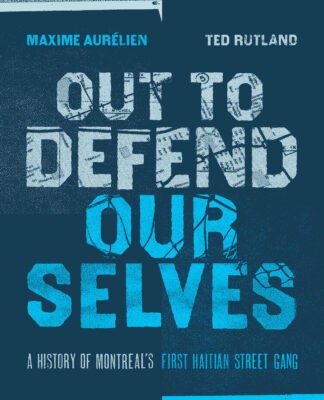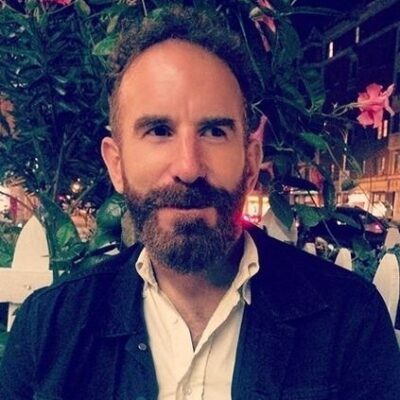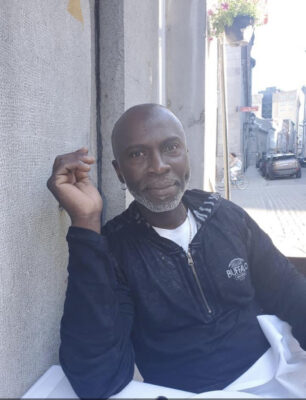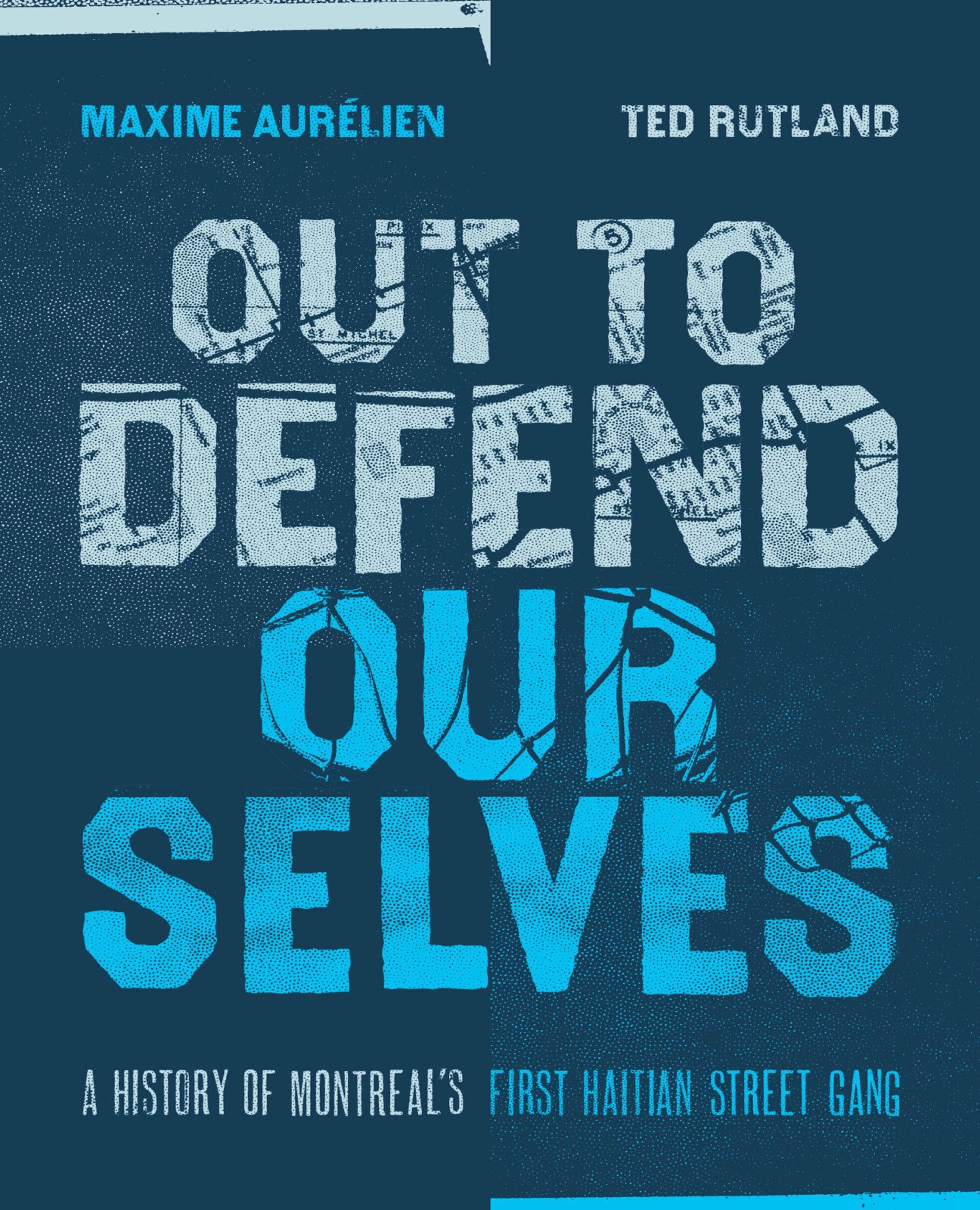Out to Defend Ourselves has a bold thesis: Montreal’s first Haitian street gang, and others that followed, are essentially the product of Quebec society’s deeply ingrained racism and its influence on policing.
It isn’t too hard to believe, either. The book’s co-author Maxine Aurélien, former leader of les Bélangers, which has been described as Montreal’s first Haitian street gang, explains how being a young Haitian in Montreal in the 1980s meant confronting near-constant marginalization, racism, and often-brutal, racially motivated violence.
“I’ve wanted to write about my experiences for a while now,” says Aurélien in a phone interview. “I wanted to write about my generation, and all the racism we experienced.”
Out to Defend Ourselves Fernwood Publishing
A History of Montreal’s First Haitian Street Gang
Maxime Aurélien and Ted Rutland
$27.00
paper
180pp
9781773635965
Though it will likely appeal first and foremost to academic readers, the book is accessible, relatable, and well paced, such that it ought to have considerable appeal for a nonacademic audience. Given the importance of its message, as much as its research and insight, finding the middle ground and maintaining that balance is an accomplishment in its own right.
Aurélien was born in Port-au-Prince in 1967 and landed in Montreal in October of 1976. He arrived as part of a new generation of immigrants who came to Canada in the 1970s after the country relaxed its formerly strict, largely whites-only immigration policies.
Sticking together was chiefly a means of survival, even though the mere presence of several young Black men standing together in a city park was often all that was needed to draw police suspicions.
There have always been gangs, in Montreal as elsewhere. But the idea of a Haitian street gang – one that seemingly materialized out of nothing into a particularly violent, hierarchical criminal organization requiring the full weight of the Montreal police to combat – that had to be invented.
Prior to the arrival of Haitians, street gangs were considered largely an issue of juvenile delinquency, a nuisance that only rarely required the intervention of armed police officers. There were bikers, the Mafia, and various family and clan organized crime groups, but the Montreal police often seemed to take a hands-off approach. They would investigate crimes after they happened, occasionally making some busts, sometimes collaborating with other police forces in broad task forces. Quebec’s biker gangs – almost exclusively white organizations – terrorized the public and murdered one another in one of the largest turf battles ever to have occurred in North America (and for nearly a decade at that) with little direct police interference. The largely imagined threat of Haitian street gangs was dealt with in a very different way, typically by over-policing Montreal’s small Haitian community and presuming that just about any group of young Haitian men were probably up to no good.
Out to Defend Ourselves packs a lot into just 180 pages. It is partly Aurélien’s memoir about being a young Haitian immigrant in 1980s Montreal, and partly a debunking of the Montreal police’s rationale and justification for its anti-gang activities. It scrutinizes a recent chapter of Montreal police history, something co-author Ted Rutland says is completely absent from Montreal’s contemporary news media landscape. It also takes a hard look at racism in Quebec in the 1980s, which looks and feels a lot like racism in Quebec in the 2020s. It also examines the moral panic around Haitian gang activity from the era in the context of a changing Quebec society.

Ted Rutland
“So much was changing in the 1980s,” Rutland recalls in a phone interview.
“You had these economic shifts where the manufacturing economy is closing down and moving first to the suburbs and then, elsewhere, Toronto or Central America or Asia,” he explains. “You have the beginning of a very polarized economy where you can either make a lot of money or very little. You have this shift away from a social safety net and social programs toward a neoliberal model which supports profit making and capital accumulation. And that goes hand in hand with increased reliance on the police and prison system to address social problems.”
As new waves of immigrants made their way to Montreal and other large cities, new ethnic communities were formed, the foundations of the multicultural cities we know today.
“But that comes with all kinds of hiccups because you have a bunch of racialized migrants moving into a white colonial city with a longstanding racial hierarchy,” says Rutland.
Though it isn’t fully explored in the book, Rutland also mentions that Quebec nationalism was changing at the same time. It shifted from a working-class decolonization effort with a strong social justice component in the 1960s to a predominantly ethnocentric and white supremacist movement that Rutland describes as being “constructed against racialized people as the primary threat to Quebec well-being.”
Rutland points to newspaper headlines, documentaries, and the columns of otherwise respectable journalists from the French-language press of the 1980s that make the skin crawl with their overt racism. Some of it wouldn’t seem out of place in the pages of the Journal de Montréal today, or coming out of the mouths of the bottom-feeders of the contemporary American far right.
The criminalization of Black lives in 1980s Montreal takes on absurd dimensions during instances when the Montreal police acted to allay the paranoid fears of the white middle class. A good example mentioned in Out to Defend Ourselves concerns the introduction of breakdancing to Montreal in the early- to mid-1980s. Black youth who gathered to breakdance at McGill Metro were associated with local crime, then violently chased out and beaten by the police riot squad. Some of the victims were traumatized for years.

Maxime Aurélien
A routine complaint from the era, one that’s unfortunately quite familiar today, is that Haitians weren’t integrating into Quebec society. Aurélien scoffs at that, saying that “the white majority prevented our integration at every turn.” He recounts racist landlords who’d refuse to rent to Haitians, Black quotas at most jobs, and authority figures – from teachers to police officers – who routinely participated in the enforced marginalization of Haitian youth. In Aurélien’s case, these factors contributed to a life of petty crime and drug abuse, habits he’s overcome in middle age.
Aurélien had wanted to tell his story since his youth, when the moral panic over Haitian street gangs in Montreal first erupted. “We were never really a gang – not a street gang, not a criminal gang,” he says; “we were a group of friends who wanted to defend ourselves against the violence we encountered every day.”
Out to Defend Ourselves is a quick though occasionally devastating read that reminds us of how little progress has been made in the last forty years. Though some of the most overt signs of racism and discrimination may be muted, a “professionalized racism,” as Rutland describes it, seems to be the new normal for the Montreal police.
Out to Defend Ourselves further reminds that, as much as the political class may wish us to believe that Montreal is unique amongst North American cities, it is in too many ways no different than any large American city when it comes to institutionalized racism and the treatment of immigrant communities. The book is essential reading for anyone seeking a better understanding of contemporary Montreal, recent Montreal social history, and the other side of “tough on crime” politics.
Few books reveal the real ugliness known by too many of Montreal’s citizens, whose races, religions, and cultures are superficially valued by the establishment for contributing to the allure of multiculturalism, while simultaneously remaining an enforced barrier to integration. It is not by flowery prose and repeated narratives of adulation that cities mature, but through trenchant and brutal criticism.
Out to Defend Ourselves is the scrutiny we need. Let it empower us to make real change.mRb







Pleased to see “Out to Defend Ourselves” has been picked up by Columbia University Press in the U.S. Kudos…!!!